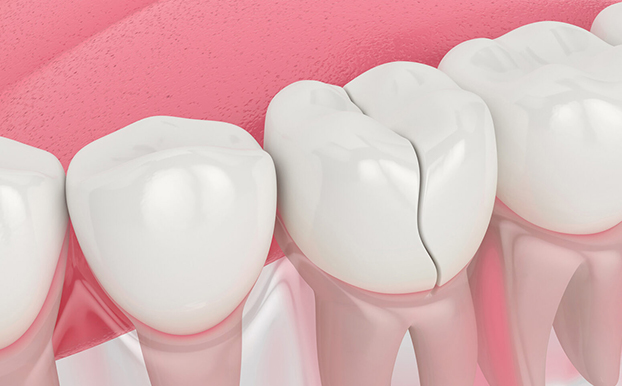What Should I Do If I Chip My Tooth

What Should I Do If I Chip My Tooth
Chipped teeth are a frequent occurrence.
Chipping a tooth is a common dental injury, with chipped teeth accounting for a majority of dental injuries, according to the American Association of Endodontists. While it can be a stressful experience, it is typically a mild problem that can be fixed through various methods.
It is important for people to stay calm and take the proper steps to address this issue. After chipping a tooth, patients should focus on their breathing and try to slow it down. While not all chipped teeth will need treatment, it is recommended that patients visit a dentist to ensure they receive the necessary treatment to restore and protect their teeth.
“According to the American Association of Endodontists, chipped teeth account for a majority of dental injuries.”
Dealing with a Chipped Tooth: Steps to Take
“It is important to immediately take certain steps after chipping a tooth to address pain and protect the tooth and inside of the mouth from further injury.”
Chipped Tooth: Child vs. Adult
Chipping a tooth is a common occurrence for both adults and children, but there are different considerations for each. Chipped primary teeth are particularly common in children, so we recommend treatments based on the patient's age and the severity of the injury.
When dealing with chipped primary teeth in children, our main focus is on preventing damage to the underlying permanent tooth. Unlike adults, children's permanent teeth are still developing and require immediate attention if chipped. Whether the chipped tooth is in a child or adult, it is crucial to seek treatment from our dentist as soon as possible.
“When treating chipped primary teeth in children, the main concern is to prevent damage to the underlying permanent tooth.”
Fixing a Chipped Tooth
There are different ways to fix a chipped tooth, depending on the condition of the tooth and the type of injury. Our dentist may be able to reattach the broken piece of a tooth in some cases. For minor damage, cosmetic contouring can be used to smooth the tooth's surface or fix a jagged edge. Other options include veneers to cover a chip or dental bonding to fill in missing tooth structure.
Deeper chips that reach below the tooth's surface may require more extensive treatment, such as a root canal or extraction. A root canal is needed when the damage reaches the pulp and causes an infection. Extraction is a last resort when a root canal is not enough to save the tooth. Patients should contact us to learn about the repair options available to them.
“There are various methods to repair a chipped tooth, depending on the state of the patient’s tooth and the type of injury.”
How to Care for a Tooth that has been Treated for a Chip
Patients who have received treatment for a chipped tooth must adhere to a regular oral care routine. This routine should include brushing twice a day and flossing at least once daily. It is important for patients to follow all after-care instructions to properly care for the repaired tooth and prevent further damage.
In addition to regular oral care, patients should avoid biting down on the treated tooth and refrain from chewing on hard foods or objects. It is also recommended that patients attend all follow-up appointments and schedule regular dental check-ups. These appointments are essential for our dentist to monitor the repair and maintain the overall oral health of patients, reducing the risk of another chipped tooth in the future.




